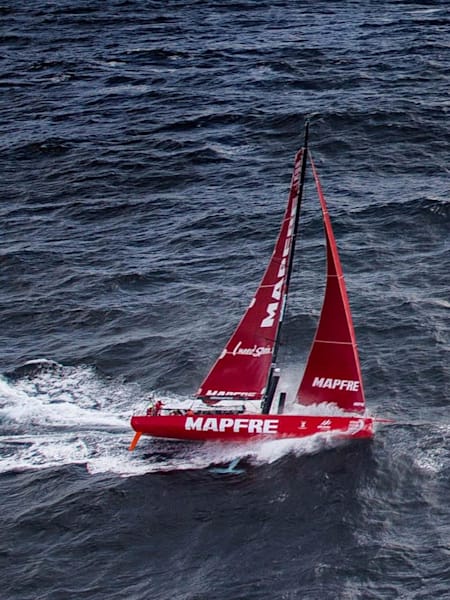We'd like to introduce you to Nemo. Actually, wait. Point Nemo. It’s a place, not a person, and it’s one of the latest (non-)stops on the Volvo Ocean Race, in which seven 21m boats race through the world’s roughest oceans. Learn more about the Volvo Ocean Race, or check it out on Red Bull TV.
Rather than the famous Pixar character, Point Nemo is named after Captain Nemo, from Jules Verne’s 20,000 Leagues Under The Sea, and it’s one of the world’s poles. Unlike the North Pole or the South Pole, Point Nemo is one of the poles of inaccessibility – meaning it’s one of the hardest places to get to on Planet Earth.
Where exactly is Point Nemo? See below
Why? ‘Point’ Nemo isn’t actually a bit of land. It’s the spot in the ocean furthest from land, in any direction. Other poles of inaccessibility include the Eurasian Pole, in China, or the Southern Pole of Inaccessibility in Antarctica – a very difficult place to visit.
But back to Nemo. As the boats race from Auckland, New Zealand, to Itajaí, Brazil, they’ll pass Point Nemo. The nearest spot for potential landfall? 2,688km away, either in the Pitcairn Islands, Moto Nui in the Easter Islands, and Maher Island in Antarctica. If you’ve got to decide, we’re going to suggest heading for the Easter Islands – Ducie Island is a non-inhabited stretch of rock about 2km long, and Antarctica is, well, Antarctica.
Watch video from the world's most remote place

Point Nemo didn’t technically exist until 1992 – or at least, we didn’t know where it was. A Croatian-Canadian survey engineer Hrvoje Lukatela used a geo-spatial computer program to figure it out. He realised that since the earth was three-dimensional, the most remote ocean point must be equidistant from three different coast lines.
The Latin translation of ‘Nemo’ actually means ‘no man’ – a fitting name for a spot so lonely. It took the fastest boat 15 days, 10 hours and 37 minutes to get there, and when the boats passed Point Nemo they were closer to astronauts on the space station than to other humans on Planet Earth.
So, how do you get there? Easy. Just punch these digits into your GPS [45º52.6S, 123º23.6W] and start sailing – and remember, once you’re there, you’ve got just as far to go to get back to land. Don’t forget to wave hello to the guys in space!


